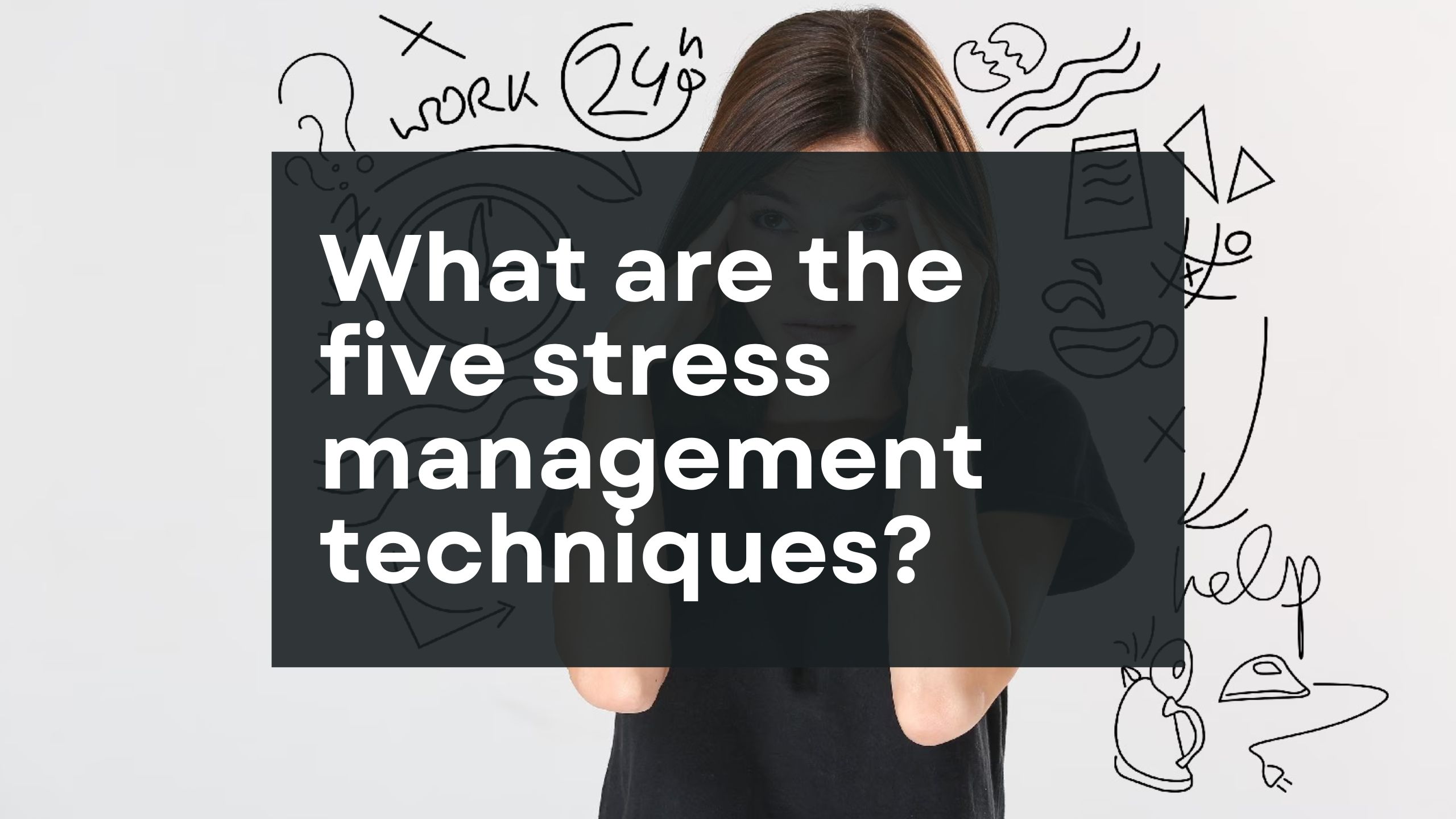Stress is a usual part of life, but how we respond to it can significantly impact our mental and physical well-being. Understanding stress and adopting effective management techniques can help us maintain balance and live more fulfilling lives.
Key Pointers
It takes a mix of techniques tailored to your particular requirements and way of life to manage stress effectively. Here is a summary of the five methods we looked at:
- Engage in meditation and mindfulness exercises: Remain rooted here and now.
- Take Part in Exercise: Elevate your mood and relieve stress.
- Make time management a priority: Take charge of your timetable.
- Choose a Healthier Way of Living: Develop resiliency through routines, sleep, and diet.
- Create a Network of Support: Seek support and direction from others.
What is stress in Mental Health?
The body’s natural reaction to perceived dangers or difficulties is stress. Chronic stress can result in physical illnesses, mental strain, and burnout, yet moderate stress can inspire us to do better.
What are the types of stress in mental health?
| Type of Stress | Description | Examples |
| Acute Stress | Short-term stress triggered by immediate challenges. | Preparing for an exam, traffic jams. |
| Chronic Stress | Long-term stress that persists over time. | Financial problems, work pressure. |
| Eustress | Positive stress that motivates and energizes. | Starting a new job, preparing for a race. |
Managing stress effectively involves identifying triggers and using the right techniques to counter its effects. Let’s dive into five proven methods.
-
Practice Mindfulness and Meditation
Why It Works:
Mindfulness helps you focus on the present moment, reducing anxiety about the future and regrets about the past. Meditation, as a practice, calms the mind and promotes relaxation.
Techniques to Try:
- Mindful Breathing: Take slow, deep breaths while paying attention to the sensation of air entering and leaving your nostrils.
- Body Scan Meditation: Close your eyes and mentally scan your body from head to toe, noticing any tension and consciously relaxing each area.
- Guided Meditation Apps: Apps like Calm or Headspace can help beginners practice structured meditation.
Example:
A study published in the Journal of Behavioral Medicine found that individuals practicing mindfulness for just 10 minutes daily reported a 30% reduction in stress levels over six weeks.
-
Engage in Physical Activity
Why It Works:
Exercise generates endorphins, also known as “feel-good” hormones, which help combat stress. Physical activity also improves sleep and boosts overall energy levels.
Options for Stress-Relieving Workouts:
| Activity | Intensity | Benefits |
| Walking | Low | Cheers mood, accessible to all. |
| Yoga | Low to Moderate | Combines movement with mindfulness. |
| Running or Jogging | High | Releases pent-up tension quickly. |
| Dancing | Moderate | Fun, social, and mood-enhancing. |
Tips:
- Start small: A 20-minute walk can make a huge difference.
- Choose activities you enjoy to ensure consistency.
- Mix it up: Alternate between cardio and low-impact exercises like yoga for variety.
-
Prioritize Time Management
Why It Works:
Stress often arises from feeling overwhelmed by tasks and deadlines. Proper time management allows you to regain control, reducing feelings of chaos.
Strategies:
- Create a To-Do List: Write down tasks and prioritize them based on urgency and importance.
- Use the Pomodoro Technique: Work for 25 minutes, then take a 5-minute break. Repeat this cycle 4 times and take a longer break.
- Set Boundaries: Learn to say no to non-essential commitments to avoid overloading your schedule.
Pro Tip:
Dedicate your peak productivity hours (e.g., mornings) to high-priority tasks and reserve afternoons for less demanding work.
-
Adopt a Healthy Lifestyle
Why It Works:
How we eat, sleep, and daily habits influence stress levels. A healthy lifestyle builds resilience against stress.
Steps to Implement:
- Nutrition:
- Eat whole foods like vegetables, fruits, lean proteins, and whole grains.
- Avoid excessive caffeine and sugar, which can trigger anxiety.
- Stay hydrated.
- Sleep:
- Aim for 7-9 hours of proper quality sleep per night.
- Follow a consistent sleep schedule.
- Create a relaxing bedtime routine (e.g., reading or taking a warm bath).
- Limit Stimulants:
- Reduce screen time, especially before bed.
- Avoid nicotine and alcohol, which disrupt sleep and increase stress.
Build a Support Network
Why It Works:
Since humans are social creatures, emotional support from deep ties reduces stress. It can be quite healing to talk to someone you trust.
Ways to Build Connections:
- Reach Out to Friends or Family: Share your concerns and ask for advice or simply vent.
- Join Support Groups: Online or in-person communities can provide a safe space to connect with others experiencing similar challenges.
- Seek Professional Help: Doctors or counselors can offer coping mechanisms and unbiased guidance.
| Level | Examples |
| Professional Support | Therapist, counselor, coach. |
| Close Circle | Family, close friends. |
| Community | Support groups, colleagues, neighbors. |
End Note:
Although stress is an unavoidable part of life, you can take charge of your health and prosper by learning these strategies. You may minimize your stress levels and enhance your general quality of life by implementing these routines into your everyday life. The objective is to develop resilience and face obstacles with assurance, not to completely eradicate stress.

Leave a Reply